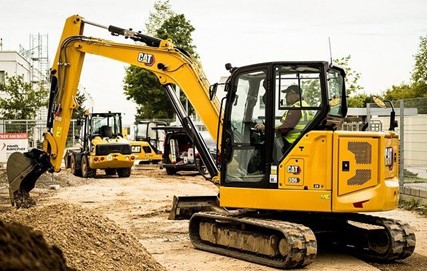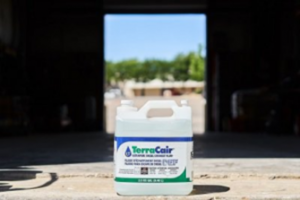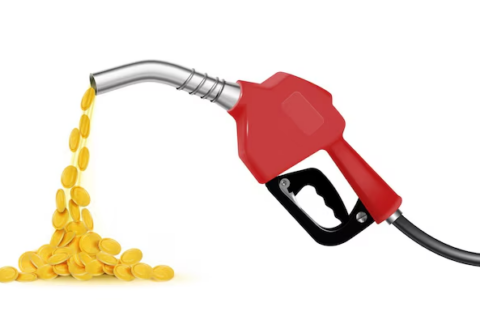All About Diesel Exhaust Fluid Going Bad

Diesel DEF or Diesel Exhaust Fluid (DEF) is an essential ingredient in keeping your diesel vehicle functioning well. The importance of DEF has led many service stations and companies that operate diesel vehicles and equipment to have fast access to DEF. While DEF can help your equipment and vehicles power through their work and operate efficiently, it can spell disaster when diesel exhaust fluid goes bad.
When fueling and maintaining vehicles and equipment that use DEF, Ricochet Fuel is dedicated to protecting consumers with the latest information. Knowing how to monitor and manage your DEF is essential for both short-term success and long-term durability. When DEF becomes degraded or contaminated, it can cause issues with equipment and engines and lead to costly repairs.
Read on to learn how to know if your DEF is going bad and what to do to protect yourself from poor fuel problems.
What Are the Risks of Bad DEF Fuel?
Knowing what Diesel Exhaust Fluid (DEF) is – can help you understand why bad DEF can lead to unwanted complications with machinery.
DEF, while having the word fuel in the name, is a non-hazardous solution. It is made up of 32.5% urea and 67.5% de-ionized water. DEF is used to break down and destroy any dangerous, noxious emissions produced by vehicles using diesel fuel.
When used, the DEF will be sprayed directly into the exhaust stream in a diesel vehicle to degrade and remove any dangerous chemicals. The remaining result is a combination of water and nitrogen.
If DEF goes bad, several adverse effects can quickly follow:
- The consumption of DEF is increased in vehicles to make up for poor quality. Increasing your DEF fuel costs.
- Potential equipment malfunctions and issues, such as unexpected engine shutdowns.
- Damage to vital vehicle and equipment components such as the diesel particulate filter and the DEF dosing pump.
- Malfunction or damage to a vehicle’s Selective Catalytic Reduction (SCR) system.
If your DEF goes bad, you can quickly experience a degradation in your vehicle’s performance as well as an increase in fuel consumption and costs. Should poor DEF lead to malfunctions or damage, the repair costs to remedy issues can quickly rise. To help you avoid potential problems, knowing how to identify bad DEF and remedy the problems rapidly is essential.
How Do I Know if My DEF is Going Bad?
One of the most essential skills to have when it comes to fuel management is identifying bad fuel. Having the ability to quickly identify bad fuel – including DEF – can help save you time and money by quickly replacing it with a safe alternative.
To tell if your DEF has gone bad, you can often look at the fuel itself. When DEF is in good shape, the liquid should look clear – free of any contaminants or discoloration. If you find that your DEF is colored, cloudy, or hard to see through, you will want to replace your DEF immediately to avoid issues.
You can also bring out a certified fuel distributor such as Ricochet Fuel to look at your DEF. A skilled technician will have the ability to quickly identify any issues with your fuel and offer you ways to replace your fuel and dispose of it safely.
Never try to use bad DEF or attempt to drain it and dispose of it yourself. One of the most dangerous ways to handle bad DEF is to try and dispose of it without proper equipment or training. Pouring DEF onto the road, the ground, or unsafe containers can lead to environmental dangers and health risks.
Your local region will likely have DEF removal and disposal policies. Contact the team at Ricochet Fuel to learn more about how to dispose of DEF safely.
Diesel Exhaust Fluid (DEF) is crucial for the efficient operation of diesel-powered vehicles. However, when DEF deteriorates, it can cause serious issues for your equipment. Here are some key signs of DEF going bad and tips for maintaining its quality.
Signs Your DEF is Deteriorating:
- Discoloration or Cloudiness
DEF should be clear and colorless. If you notice a cloudy or discolored appearance, it could indicate contamination or degradation, which affects its effectiveness. - Increased DEF Consumption
A higher-than-usual DEF consumption rate may signal that the fluid is no longer functioning at full capacity, leading to inefficiency and increased operational costs. - Warning Lights
Pay attention to DEF-related warning lights on your dashboard. These alerts can indicate issues with the quality or quantity of DEF and help prevent more serious problems. - Decreased Engine Performance
Bad DEF can lead to reduced engine power, rough idling, or even engine shutdowns, all of which may be linked to faulty emissions control systems due to degraded DEF.
Tips to Maintain DEF Quality:
- Proper Storage
Store DEF in a cool, dry location away from sunlight. Extreme temperatures can cause DEF to break down quickly, so ensure it’s kept at a stable temperature. - Monitor Shelf Life
DEF typically lasts about a year from production. Be sure to check expiration dates and avoid using old DEF to ensure its effectiveness. - Regular Testing
Use DEF testing kits to check for contamination and ensure the fluid meets quality standards.
How to Keep Your DEF in Good Shape

The best way to protect yourself from bad DEF is to have a set practice for care and maintenance of your fuel. Here are five tips for keeping your DEF – and your equipment – in top shape:
- Properly Store Your DEF Fuel
Storing your DEF fuel properly can increase the life of your fuel and prevent contamination and waste. Keep DEF stored in approved containers made of stainless steel and polypropylene materials. And ensure every container is properly labeled.
- Watch the Temperature
As DEF is two-thirds water, the fuel can freeze without damage. However, extended heating and exposure to direct sunlight can degrade DEF quickly. Keep your DEF stored where it can maintain a safe temperature. That can avoid contamination and degradation.
- Keep DEF Containers Filled & Nozzles Clean
Watch your levels in your DEF containers to ensure that you maintain a safe fuel level. Also, watch your dispensing nozzles to ensure that there are no unwanted contaminants reaching the fuel inside the container.
- Assign a Fuel Supervisor
Designate a member of your team to oversee supervising your DEF fuel. From monitoring fuel levels to ensuring that the fuel is clean, a DEF fuel supervisor will help you avoid various issues in the short and long term.
- Work with a Reputable Bulk Fuel Provider
When it comes to fueling your vehicles, it’s always good to be working with a bulk fuel provider that has high-quality products. Plus, you’ll have a trusted partner you can go to for any maintenance questions.
How to Keep Your Fleet Running its Best
Ensuring your DEF fuel is maintained is vital to preventing unexpected problems with vehicles and interruptions to your business. If you need help maintaining your DEF fuel, partner with a company with years of experience helping customers with all their fuel needs.
Since 1988, Ricochet Fuel Distributors, Inc. has been supplying bulk fuel. We service Texas and the surrounding states of Arkansas, Louisiana, New Mexico, Oklahoma, Georgia, Iowa, Kansas, Missouri, Ohio, Pennsylvania, South Carolina, and Wisconsin.
We’d like to make you one of our satisfied customers too. For more great insight and tips like this, as well as services including bulk fuel tank testing, cleaning, and repair, contact Ricochet Fuel today.


